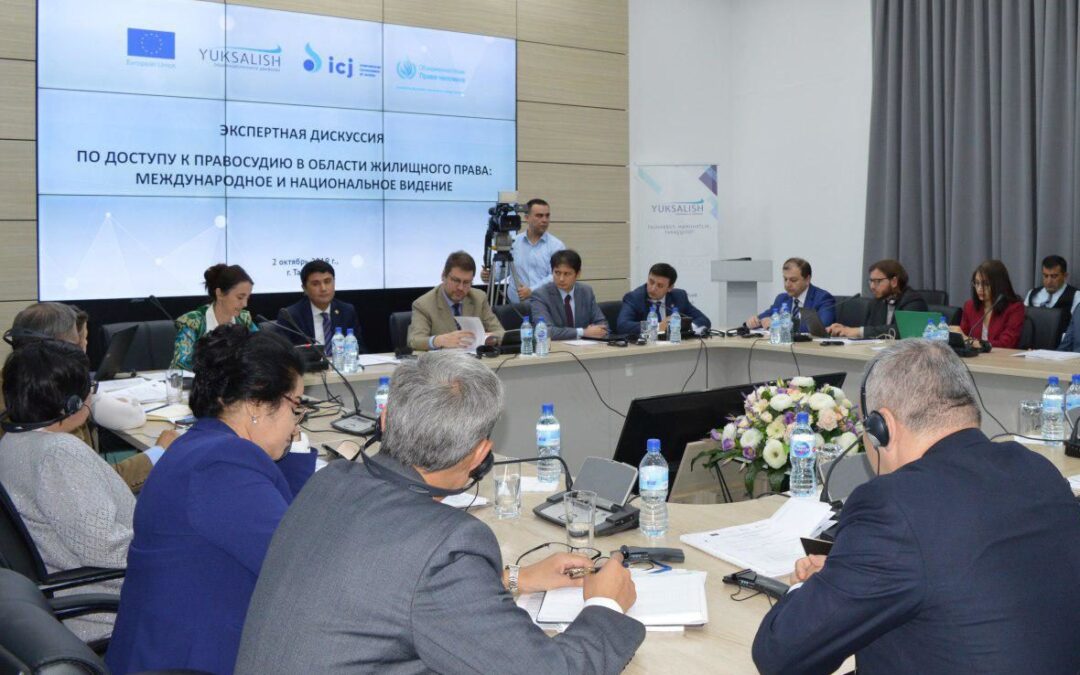
Oct 2, 2019 | News
Today, the ICJ, Regional Office of the UN High Commissioner for Human Rights (OHCHR) for Central Asia and the Nationwide Movement “Yuksalish” are holding an Expert Discussions on economic, social and cultural rights (ESC) rights and standards in Uzbekistan.
The topic of the Fourth Expert Discussions is “Access to justice for housing rights: international and national perspectives.” This discussion will be focused on the right to adequate housing.
The Expert Discussions are aimed at increasing awareness about the implementation of international law and standards on ESC rights by national courts, to facilitate access to justice in relation to ESC rights and effective use of international human rights law for ESC rights at the national level.
Each Expert Discussion is supported by presentations of international and national experts.
The first experts’ meeting was held in September 2018 on international standards in labour rights, the second meeting – held in December 2018 touched upon the principle of non-discrimination in courts and court decisions, and the third meeting – held in March 2019 – was dedicated to the rights of people with disabilities.
These three events brought together lawyers, defense lawyers, individual experts, civil society activists, NGOs, academia representatives and law students via interactive discussions, research papers, peer review articles and policy papers.
“In recent years, large-scale work has been carried out in Uzbekistan to provide housing for the rural population through the construction of affordable residential buildings according to updated standards. However, participatory decision-making is in need to guarantee housing rights. It is vital to create opportunities for various groups to speak out on the topic and establish an open dialogue. We hope that today`s platform is one of such tools for exchange of opinions,” said Akmal Burkhanov, Chairperson of the Nationwide Movement “Yuksalish”.
Head of the EU Delegation in Uzbekistan Ambassador Eduards Stiprais said: “Economic, social and cultural rights are fundamental rights for every individual. They are also fundamental for the economic development of the society. No man and no company will invest in improving its situation unless it can rely on its right to appropriate the fruits of its investment.”
Helena Fraser, UN Resident Coordinator, noted in her opening remarks that “under Sustainable Development Goal 11 by 2030 all UN member States commit to “make cities and human settlements inclusive, safe, resilient and sustainable. The nationally adopted SDG targets for Uzbekistan are to ensure access to affordable housing for all; and to increase the scale of participatory planning of human settlements”.
“These, our fourth expert discussions on economic and social rights, are devoted to the important issue of the right to adequate housing, a right that is well established in international human rights law. We aim to hold a constructive discussion, informed by international law as well as national best practices, to find ways to address an array of issues linked to housing rights in Uzbekistan. We would like to thank the EU Delegation for their support, as well as our partners – the Regional UN Human Rights Office (OHCHR) for Central Asia and the Nationwide movement “Yuksalish”,” said Róisín Pillay, Europe and Central Asia Programme Director of the ICJ.
Background
Uzbekistan ratified the International Covenant on Economic, Social and Cultural Rights (ICESCR) in 1995. In 2014, the Committee on Economic, Social and Cultural Rights recommended Uzbekistan “to take appropriate measures, including legislative and other measures, to provide all evicted persons with alternative accommodation or adequate compensation”.
The third national periodic report of Uzbekistan on implementation of provisions of the ICESCR was submitted in June 2019. The list of questions regarding the submitted report will be adopted in March 2020.
The Expert Discussions are organized in the framework of the project “Advancing Civil Society in Promoting Economic, Social and Cultural Rights’ (ESCR) Standards (ACCESS)” funded by the EU through the European Instrument for Democracy and Human Rights (EIDHR).
Contact
Dilfuza Kurolova, ICJ Legal consultant, t: +998 90 9050099 ; e: dilfuza.kurolova(a)icj.org
Download
Uzbekistan-Expert discussions ESCR-News-2019-ENG (full story in PDF)
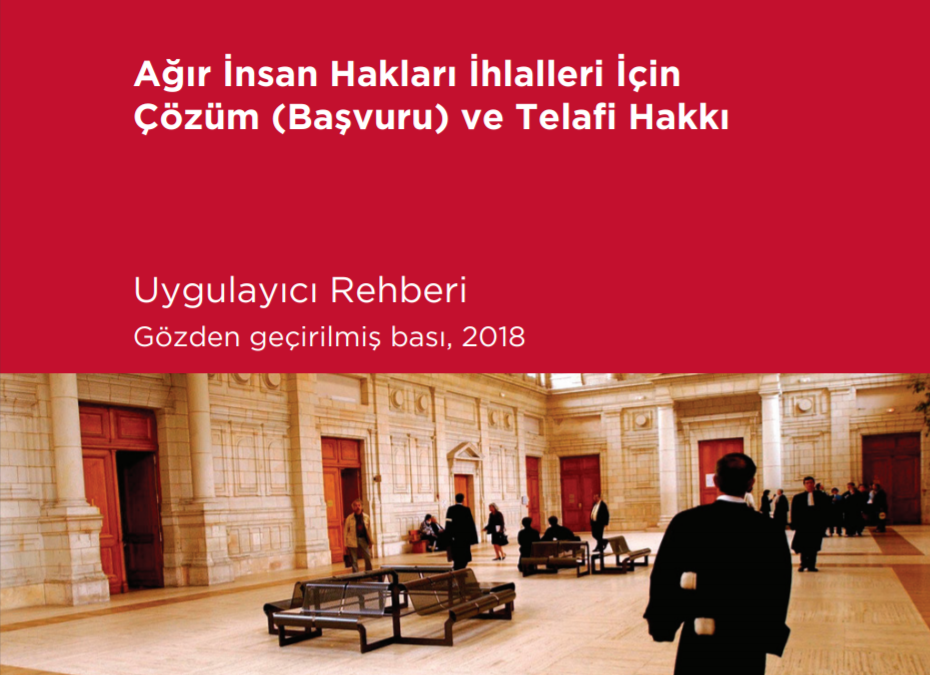
Oct 1, 2019 | News
Today, the ICJ published a Turkish translation of Practitioners’ Guide N°2 on the Right to a Remedy and Reparation for Gross Human Rights Violations.
The translation has been funded by the European Instrument for Democracy and Human Rights (EIDHR).
Under its Global Redress and Accountability Initiative, the ICJ had launched its 2018 update to Practitioners’ Guide No 2, outlining the international legal principles governing the right to a remedy and reparation for victims of gross human rights violations and abuses by compiling international jurisprudence on the issues of reparations.
The Guide is aimed at practitioners who may find it useful to have international sources at hand for their legal, advocacy, social or other work.
Amongst revisions to the Guide, the 2018 update includes new sections on terminology and on non-discrimination;updated sections on the notions of ‘collective victims’, ‘collective rights’, the rights of ‘groups of individuals’; additional references to the work of the Committeeon the Elimination of Discrimination against Women and the Committee on the Rights of the Child; an updated section on remedies for unlawful detention, including references to the 2015 UN Basic Principles and Guidelines on Habeas Corpus; and updates on gender-based violence and on violations occurring in the context of business activities.
The Guide first recalls the States’ general duty to respect, protect, ensure and promote human rights, particularly the general duty of the State and the general consequences flowing from gross human rights violations (Chapter 1).
It then defines who is entitled to reparation: victims are, of course, the first beneficiaries of reparations, but other persons also have a right to reparation under certain circumstances (Chapter 2).
The Guide goes on to address the right to an effective remedy, the right to a prompt, thorough, independent and impartial investigation and the right to truth (Chapters 3-4).
It then addresses the consequences of gross human rights violations, i.e. the duty of the State to cease the violation if it is ongoing and to guarantee that no further violations will be committed (Chapter 6). It continues by describing the different aspects of the right to reparation, i.e. the right to restitution, compensation, rehabilitation and satisfaction (Chapter 7).
While the duty to prosecute and punish perpetrators of human rights violations is not necessarily part of the reparation as such, it is so closely linked to the victim’s right to redress and justice that it must be addressed in this Guide (Chapter 8).
Frequent factors of impunity, such as trials in military tribunals, amnesties or comparable measures and statutes of limitations for crimes under international law are also discussed (Chapter 9).
The guide in Turkish is available here.
This document has been produced with the financial assistance of the European Union. The contents of this document are the sole responsibility of the ICJ and can under no circumstances be regarded as reflecting the position of the European Union.

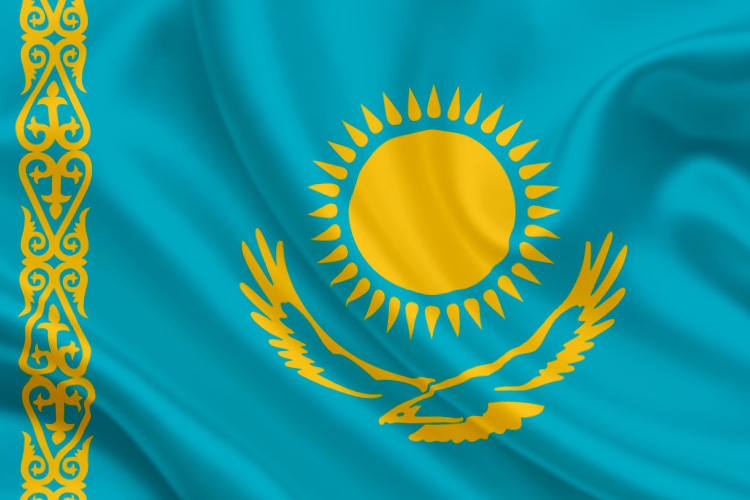
Sep 30, 2019 | Agendas, Events, Uncategorized
Today, in the framework of the EU funded project “Enhancing legal protection of migrants rights in Kazakhstan”, the Legal and Policy Resource Center (LPRC) and the ICJ began a series of three trainings linked to this issue for lawyers and civil society organizations.
Three two-day trainings on “International and national Law on the protection of migrants in legal practice” will take place from 30 September to 5 October in Nur-Sultan, Shymkent and Almaty.
The trainings will address international and national law and standards relevant to the protection of the rights of migrants, including in situations of expulsion and detention, as well as with regard to the respect, protection and fulfilment of their economic, social and cultural rights.
During the trainings, 100 attorneys and lawyers of non-governmental organizations from 10 regions of Kazakhstan will be trained.
Kazakhstan-Training-Agenda-MigrationIHRL-NurSultan-2019-engrus (download the agenda of the Nur Sultan training in Russian and English)
Kazakhstan-Training-Agenda-MigrationIHRL-Shymkent-2019-engrus (download the agenda of the Shymkent training in Russian and English)
Kazakhstan-Training-Agenda-MigrationIHRL-Almaty-2019-engrus (download the agenda of the Almaty training in Russian and English)
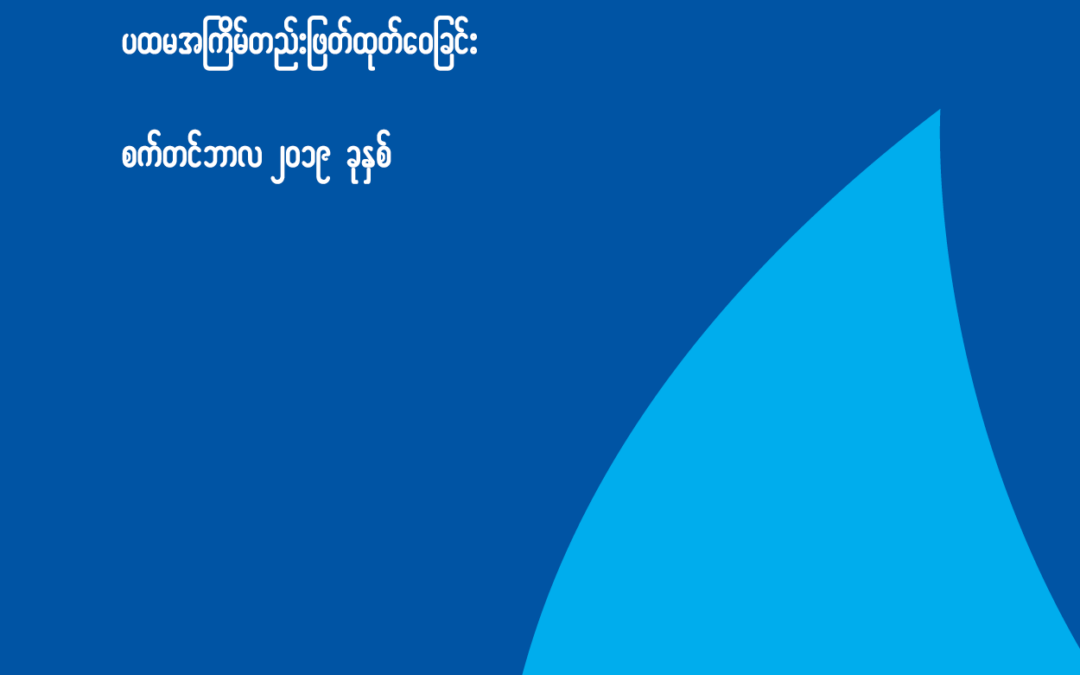
Sep 30, 2019 | Advocacy, News, Publications
The ICJ today published a “Strategic Litigation Handbook for Myanmar.” In this, the ICJ seeks to offer an accessible, concise and substantial overview of the conceptual basis and purpose of strategic litigation.
The Handbook shows the potential impacts of strategic litigation in Myanmar, by drawing on experiences from Myanmar and other countries, while recognizing the related challenges and opportunities, as expressed by legal professionals and civil society actors. It is intended to be useful to all legal practitioners and community activists in Myanmar.
While there is no universal definition or conception of ‘strategic litigation,’ the term is typically used to describe litigation whereby the interests may go beyond those of the primary litigants. The various adjudication processes it entails are sometimes referred to as ‘public interest litigation’, ‘impact litigation’, ‘test case litigation’, or ‘community lawyering’. What they all have in common is the idea that courts and the law can be used as part of a campaign to achieve broader change in relation to matters seen to be in the broader public interest.
Part one of the Handbook explores core aspects of strategic litigation, including its origins, key concepts, potential impacts, challenges and forums. In part two, areas of law are identified which offer potential options for strategic litigation actions, including procedures, legislation and constitutional writs. Practical steps for the planning and application of strategic litigation, such as media strategy and case selection, are outlined in part three. Finally, part four of the Handbook discusses related challenges in the Myanmar context, including a discussion of requisite reforms required in the justice sector more broadly.
The Handbook (first edition) is published in Burmese and English.
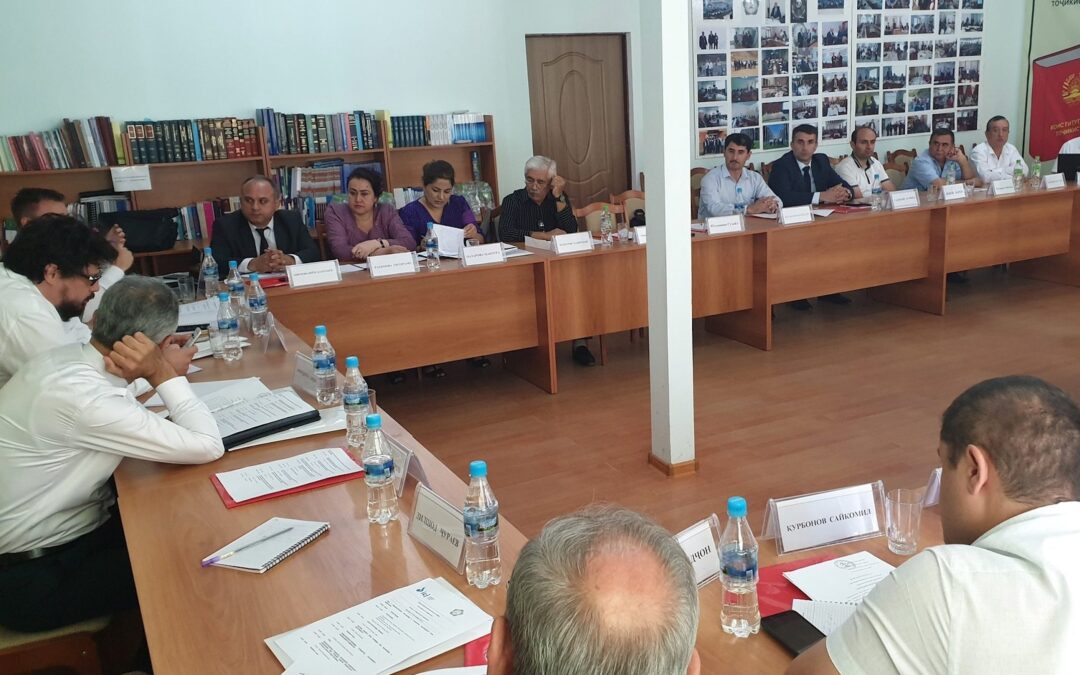
Sep 29, 2019 | News
On September 27-28, the International Commission of Jurists (ICJ), in cooperation with the Union of Lawyers of the Republic of Tajikistan, held a training on protecting the rights of lawyers and guarantees of the legal profession as well as the role of the Bar Association in protecting its members.
Around thirty lawyers from all regions of the Tajikistan took part in the training. Over two days lawyers discussed effective use of international mechanisms and international law and standards related to the protection of the rights of lawyers.
Particular attention was paid to the organization, functioning and role of the Commission for the Protection of the Professional Rights of Lawyers of the Union of Lawyers of the Republic of Tajikistan.
The event was attended by members of the Commission who had an opportunity to discuss the role and the effective work of this specialized body on protection of lawyers.
The Committee on the protection of the rights of lawyers of the Ukrainian National Bar Association delegated its members to the event to share their best practices and recommendations to overcome the challenges which arise in the work of these bodies.
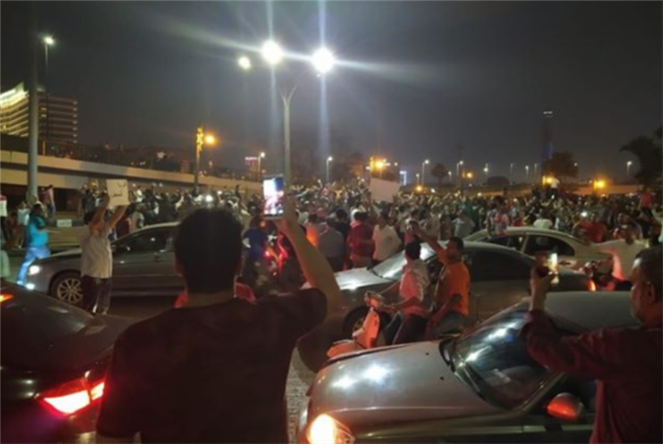
Sep 27, 2019 | News
The ICJ today called on the Egyptian authorities to respect and protect the right of Egyptians to the freedom of expression, association and assembly, and ensure that all those arbitrarily detained over the past week in the context of recent protests against President Abdel Fattah Al-Sisi’s rule are immediately and unconditionally released.
On 26 September, the Office of the Public Prosecutor issued a statement confirming the detention of more than 1000 people following their “participation in protests” and “confessions” that their participation is related to “their dissatisfaction with the economic situation in the country,” and “opposition to the regime.”
Documentation by local NGOs indicates that as many as 2000 people may have been arrested, and that most of them were charged with “belonging to a ‘terrorist group’ and “distributing false information through social media aiming at disturbing the public order and opinion.”
“Egyptians taking to the street in protest are defying six years of Sisi’s government rampant corruption, relentless repression, and systematic dismantling of the rule of law and accountability safeguards,” said Said Benarbia, ICJ MENA Director.
Benarbia added, “By filling prisons with those purportedly dissatisfied with the situation in the country, Egypt’s prosecutors and judges are acting, yet again, as a docile tool of repression rather than a shield against the military’s crackdown on human rights and fundamental freedoms.”
As the country braces for new protests today, the ICJ is deeply concerned that Egyptian laws place overly restrictive limitations on the exercise of the right to freedom of assembly and give security forces sweeping powers to disperse protests, including by using lethal force when it is not strictly necessary to protect lives.
Six years after the killing by the armed and security forces of more than 1,000 individuals in the context of the dispersal of the Rabaa’ Al-Adawyia and Al Nahda Square sit-ins, the ICJ notes that not a single person has been brought to justice for the mass killings of protestors.
“Egyptian security and armed forces have a long history of recourse to unlawful and disproportionate use of force, including firing with live ammunition into crowds,” said Benarbia.
“They must comply with Egypt’s obligations under international law and guarantee the rights of protesters to life, to be free from torture and other ill-treatment, and to freedom of assembly, association and expression,” added Benarbia.
Contact:
Said Benarbia, Director of the ICJ Middle East and North Africa Programme, t: +41-22-979-3817; e: said.benarbia(a)icj.org
Download:
Egypt-free detainees-News-Press releases-2019-ARA (press release in Arabic, PDF)











